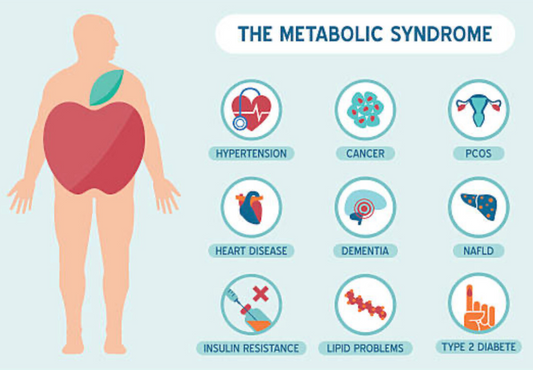Have you ever considered that the way your body breaks down food and turns it into energy could impact your mental health?
Recent research by a team of scientists has started to unravel this complex connection. Their study, "Metabolic Profile and Long-Term Risk of Depression, Anxiety, and Stress-Related Disorders," dives deep into how our metabolic health might influence our chances of facing mental health challenges like depression, anxiety, and stress-related disorders. Let's break it down into simpler terms.
Metabolism is like the body's engine room, converting the food we eat into the fuel our bodies need to work properly. But what happens when this engine room doesn't work as well as it should? As explored in this study, there’s a link between how well our metabolism functions and our mental health.
The researchers looked at a bunch of data and found that people with certain metabolic issues (metabolic syndrome, high triglycerides, low HDL (protective) cholesterol, hypertension, insulin resistance, etc.), have a higher risk of developing mental health conditions such as depression and anxiety. This doesn't mean that every person with metabolic concerns will face these challenges, but there is a noticeable connection.
So, what's the link? The study suggests that when our metabolism isn't working right, it could lead to changes in the body that might make us more vulnerable to mental health conditions. This could involve anything from how our body deals with stress to how it manages hormones that affect our mood.
Understanding this link is crucial because it offers a fresh perspective on tackling mental health issues. If we know that improving our metabolic health might also benefit our mental well-being, we could approach prevention and treatment from a new angle. This might mean that managing your metabolism through diet, exercise could also help keep your mental health in check. We see this come to fruition on a regular basis in our 28-Day Metabolic Reboot programs.
In conclusion, while the idea of our metabolism affecting our mental health might seem unrelated, science shows a clear connection. It highlights the importance of looking after our physical health as a way of protecting our mental well-being too. So, the next time you're thinking about skipping that workout or reaching for junk food, remember—it's not just your body that benefits from a healthy lifestyle, but your mind as well.
























